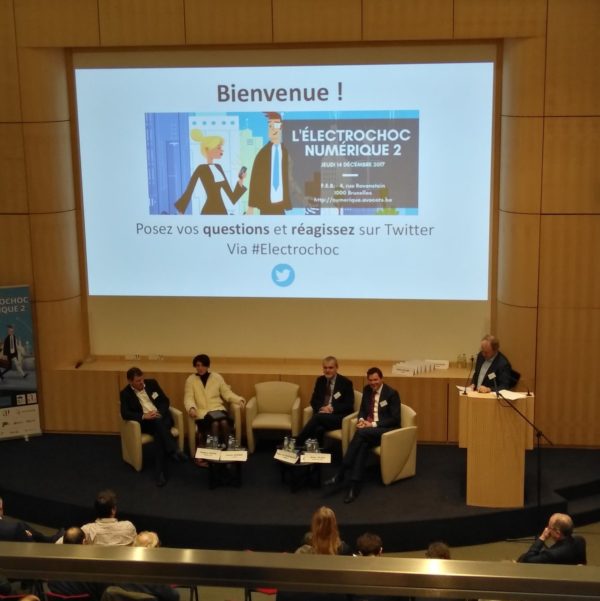Patrick Conrads, member of the Board of Directors and Thomas Verbeeck, a colleague of his firm went to the second edition of the “Electrochoc Numérique” semina, which took place in Brussels on December 14, 2017.
Lawyers are increasingly aware of the impact of the digital revolution on their profession. The objective of this seminar was to answer the two main questions which remained at the heart of the reflections: „Why do we have to move?” and „Where to start?”
Too many lawyers today feel innovation as a threat rather than an opportunity. Yet it is by developing a prospective vision of its activity and refocusing on its added value that the lawyer of tomorrow will emerge winner of the digital revolution.
The digital revolution, with its portability tools, misleads the traditional model because it opens up knowledge and pushes for transparency, responsiveness and collaborative mode. (The hourly rate model does not encourage firms to structure more efficiently and clients have become aware of it).
What do customers, who also live their digital revolution and have become digital consumers, expect? This question was the subject of the first part of this meeting. Customers are probably looking for more agile solutions in terms of pricing, communication, listening or content. Customers are increasingly demanding, which has consequences on the value of the benefit, on the prices charged and on how the right is approached as a product. The client wants to become an actor of his file and the lawyer becomes no more guide, but companion of road.

How can the lawyer then review his position in digital time? This question was the subject of the second part of this meeting. It is obvious that the client will no longer come to his lawyer to obtain an obscure or abstract legal answer. He will come to share a common experience with his lawyer and together, they will develop the best solution to adopt.
In order to carry out his transformation, the lawyer will have to improve his organization and develop new tools. He will have to develop a collective intelligence focused on free access to knowledge.
The meteoric developments of artificial intelligence open up new perspectives for the lawyer to manage knowledge, organize data, anticipate the outcome of litigation using predictive tools, and give time to accentuate its advisory role through empathetic listening and sharing of experience.
For lawyers, an interest in innovation, not only technological but also economic, managerial and societal, is a precondition for the necessary transformation to ensure the continuity of the essence of the profession of lawyer: defending and counseling the human.
An article written by Patrick Conrads drawing up a status of the issues of digital for lawyers is coming and will soon be published for all membrers of AEA.